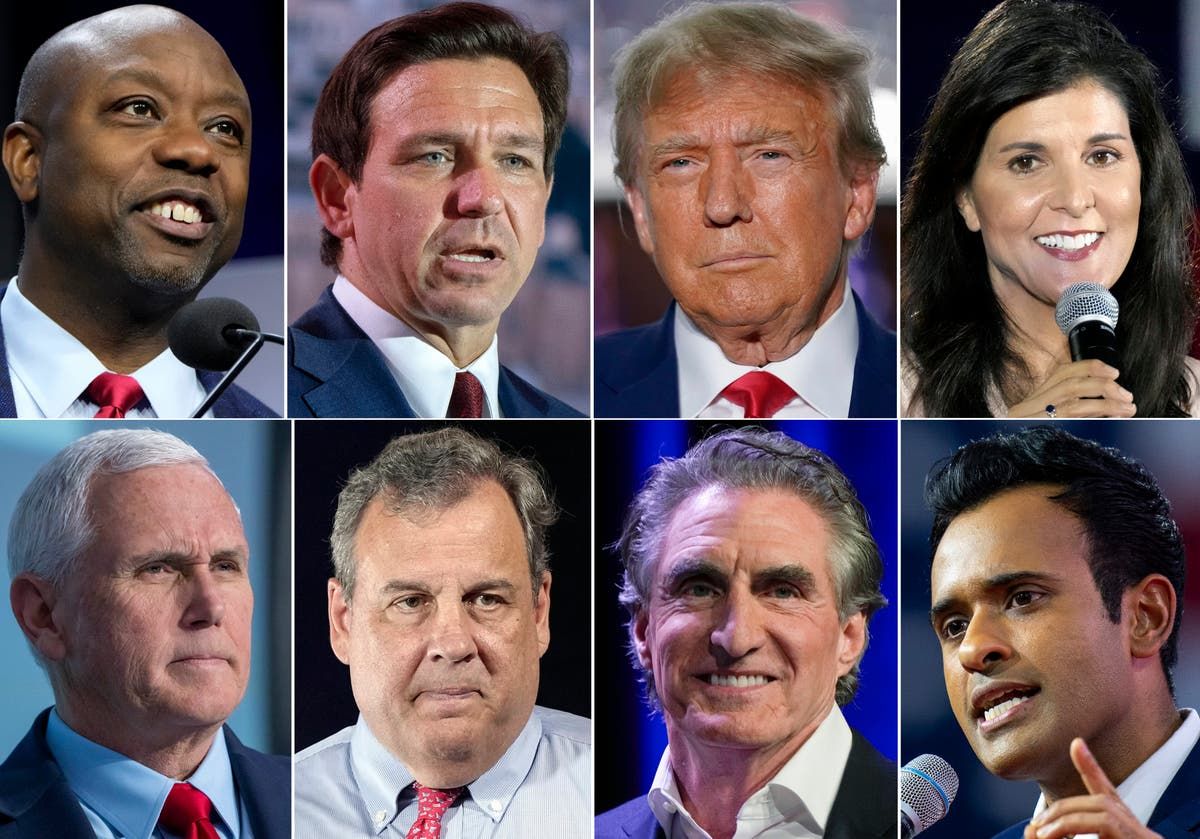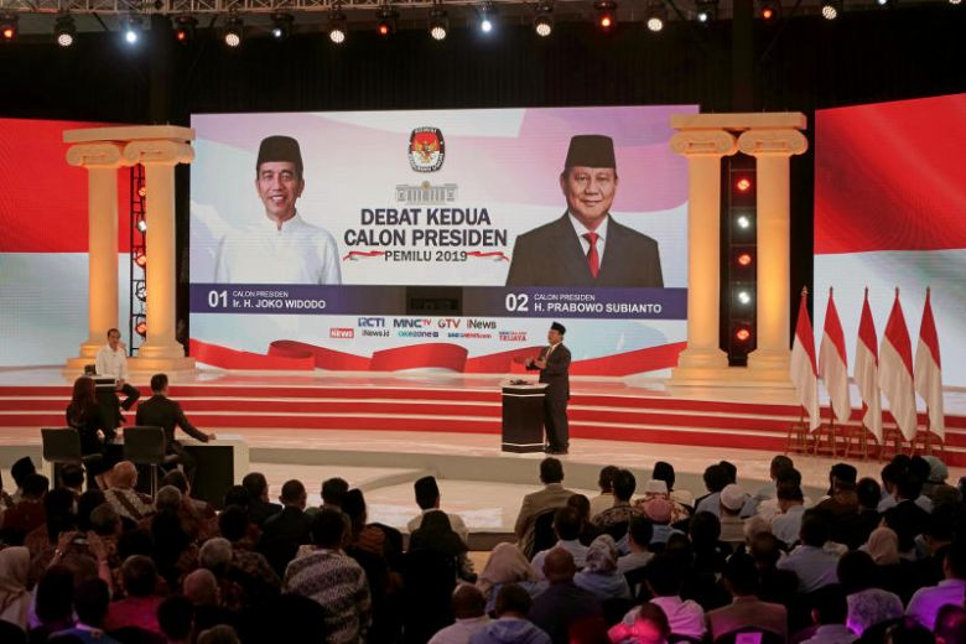Factors Influencing Debate Time Selection: Presidential Debate Time

The selection of debate times is a complex process influenced by a multitude of factors, ranging from audience viewership to candidate availability and logistical considerations. This process involves various stakeholders, each with their own priorities and interests.
Stakeholders Involved
Determining debate times involves several key stakeholders who play a crucial role in shaping the final decision.
- Political Parties: Parties represent the candidates and have a vested interest in ensuring debate times that maximize their candidates’ visibility and exposure to the electorate. They may advocate for specific times that align with their strategic goals and target audience preferences.
- Debate Organizers: These organizations, often non-partisan, aim to create a fair and balanced platform for the candidates. They consider factors such as audience engagement, logistical feasibility, and the availability of venues to determine the optimal debate times.
- Media Networks: Broadcasting the debates is a major responsibility of media networks. They seek to maximize viewership and ratings, influencing their preference for debate times that align with peak viewing hours and popular programming schedules.
Considerations for Debate Time Selection
The selection of debate times is driven by a range of considerations, ensuring a balance between audience engagement, candidate convenience, and logistical constraints.
- Audience Viewership: Debate organizers and media networks prioritize times that maximize viewership, typically targeting evenings and weekends when audiences are more likely to be available. This aligns with the goal of reaching a broad and diverse audience.
- Candidate Availability: The candidates’ schedules and travel arrangements play a significant role in determining debate times. Organizers must work with campaigns to find times that suit the candidates’ commitments and minimize disruptions to their campaigns.
- Logistical Constraints: Practical considerations, such as venue availability, production requirements, and travel arrangements, influence the selection of debate times. Organizers need to ensure that all logistical aspects are feasible and that the chosen time allows for adequate preparation and execution.
Examples of Factors Shaping Debate Times
- 2020 US Presidential Debates: The debates were scheduled on weekdays, aligning with peak television viewership, while ensuring candidate availability during a busy campaign season. The selection of times also considered the availability of prime-time slots on major television networks.
- 2016 UK Referendum Debates: The debates were held during prime time on weekdays, balancing the need for maximum audience engagement with the logistical constraints of campaign schedules. The organizers aimed to reach a wide audience, particularly those who were undecided about the referendum.
Impact of Debate Time on Candidate Performance and Audience Engagement

The duration of a presidential debate can significantly influence both candidate performance and audience engagement. The time allotted for the debate impacts how candidates present their arguments, respond to challenges, and connect with viewers.
Advantages and Disadvantages of Debate Time, Presidential debate time
The length of a debate can present both advantages and disadvantages for candidates.
- Longer Debates: Provide candidates with ample time to elaborate on their positions, address complex issues, and engage in more nuanced discussions. This can be particularly beneficial for candidates with detailed policy proposals or those seeking to showcase their knowledge and command of the subject matter. However, longer debates can also lead to fatigue for both candidates and viewers, potentially diminishing the impact of the event.
- Shorter Debates: Allow candidates to deliver concise and impactful statements, maximizing the attention span of viewers. Shorter debates can also help maintain a faster pace, keeping the audience engaged. However, they may limit opportunities for in-depth discussions and candidate responses. This can be detrimental to candidates who rely on detailed explanations or those seeking to highlight their experience and expertise.
Debate Time and Candidate Interactions
Debate time can significantly influence the dynamics of candidate interactions, impacting opportunities for rebuttal and the potential for fatigue.
- Rebuttal Opportunities: Longer debates provide more opportunities for candidates to respond to their opponents’ statements, allowing for more robust exchanges of ideas. This can lead to more compelling and informative debates, as candidates are forced to defend their positions and address opposing viewpoints. However, too much time for rebuttal can also lead to interruptions, accusations, and unproductive exchanges, potentially detracting from the overall quality of the debate.
- Candidate Fatigue: Longer debates can lead to candidate fatigue, potentially impacting their ability to deliver clear and coherent arguments. Candidates may become less focused and more prone to making mistakes or losing their composure. This can negatively affect their performance and undermine their credibility. Shorter debates minimize the risk of fatigue, allowing candidates to maintain their energy and focus throughout the event.
Debate Time and Audience Engagement
The relationship between debate time and audience engagement is complex, influenced by factors such as attention spans and viewer fatigue.
- Attention Spans: Shorter debates are more likely to hold the attention of viewers, particularly those with limited time or short attention spans. However, longer debates may provide more opportunities for viewers to engage with the content, particularly those seeking in-depth analysis and detailed discussions.
- Viewer Fatigue: Longer debates can lead to viewer fatigue, potentially diminishing the impact of the event. Viewers may become disengaged and less likely to retain the information presented. Shorter debates minimize the risk of fatigue, keeping viewers engaged and more likely to remember the key arguments and takeaways.
Presidential debate time is a pivotal moment in our nation’s journey, a time when the candidates’ visions clash and the future hangs in the balance. The Fox Presidential Debate, a platform where voices are amplified and ideas are scrutinized , is a crucial part of this process, shaping the narrative of the election and illuminating the path forward for our country.
As we watch these debates unfold, we must remember the power of our voices and the responsibility we hold to engage in informed and thoughtful dialogue, ensuring that the outcome reflects the collective will of the people.
Presidential debate time is a critical moment for the nation, a time for reflection and for discerning the voices that will shape our future. As we listen to the candidates, it’s important to remember the power of informed voices in shaping public discourse, like that of linsey davis , who has dedicated her career to amplifying diverse perspectives.
These debates are a platform for change, and we must approach them with an open mind, ready to engage with the ideas that will define our tomorrow.
